- News
- Reviews
- Bikes
- Accessories
- Accessories - misc
- Computer mounts
- Bags
- Bar ends
- Bike bags & cases
- Bottle cages
- Bottles
- Cameras
- Car racks
- Child seats
- Computers
- Glasses
- GPS units
- Helmets
- Lights - front
- Lights - rear
- Lights - sets
- Locks
- Mirrors
- Mudguards
- Racks
- Pumps & CO2 inflators
- Puncture kits
- Reflectives
- Smart watches
- Stands and racks
- Trailers
- Clothing
- Components
- Bar tape & grips
- Bottom brackets
- Brake & gear cables
- Brake & STI levers
- Brake pads & spares
- Brakes
- Cassettes & freewheels
- Chains
- Chainsets & chainrings
- Derailleurs - front
- Derailleurs - rear
- Forks
- Gear levers & shifters
- Groupsets
- Handlebars & extensions
- Headsets
- Hubs
- Inner tubes
- Pedals
- Quick releases & skewers
- Saddles
- Seatposts
- Stems
- Wheels
- Tyres
- Health, fitness and nutrition
- Tools and workshop
- Miscellaneous
- Cross country mountain bikes
- Tubeless valves
- Buyers Guides
- Features
- Forum
- Recommends
- Podcast
review
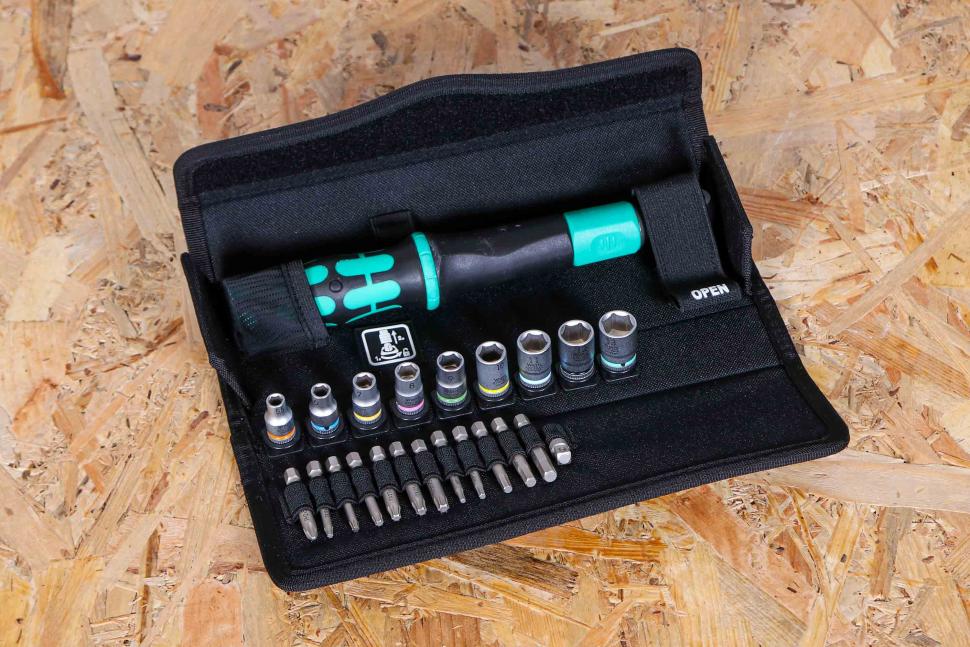 2023 Wera Tools Safe-Torque A 2 Wrench Set 2-12 Nm Hex 23pc - case open.jpg
2023 Wera Tools Safe-Torque A 2 Wrench Set 2-12 Nm Hex 23pc - case open.jpg£408.99
VERDICT:
Eye-wateringly expensive, high quality, but missing a compelling use case as well as key bike shop-friendly features
Bi-directional
100% safe – no overtorquing
Quick to lock for non-torque use
Nice bit-set
PRICE
Clicks over by 30 degrees
Restricted to 2-12Nm range
Bit-set holders aren't labelled
Lots of winding up and down to set torque
Small scale
No thumbwheel
Weight:
913g
Contact:
At road.cc every product is thoroughly tested for as long as it takes to get a proper insight into how well it works. Our reviewers are experienced cyclists that we trust to be objective. While we strive to ensure that opinions expressed are backed up by facts, reviews are by their nature an informed opinion, not a definitive verdict. We don't intentionally try to break anything (except locks) but we do try to look for weak points in any design. The overall score is not just an average of the other scores: it reflects both a product's function and value – with value determined by how a product compares with items of similar spec, quality, and price.
What the road.cc scores meanGood scores are more common than bad, because fortunately good products are more common than bad.
- Exceptional
- Excellent
- Very Good
- Good
- Quite good
- Average
- Not so good
- Poor
- Bad
- Appalling
The Wera Tools Safe-Torque A 2 Wrench Set is an extremely expensive way to never damage a smaller component or fastener again. It's built to Wera's usual high standards of fit and finish, with a quality set of accessories. Being limited to 2-12Nm, the bi-directional functionality is of questionable use, as there are very few bike fasteners in that range that are reverse-threaded. And the click-over requires control and awareness so as not to injure yourself.
If you're just starting out on your bike fettling journey, our beginner's guide to bike tools will help you choose the gear needed for basic bike maintenance; or check out our guide to the best torque wrenches.
> Buy now: Wera Tools Safe-Torque A 2 Wrench Set for £317.11 from Protrade
Wera is a German engineering tools firm renowned for its quality and attention to detail. There's a corner of bicycle mechanic culture devoted to 'toolbox wars', where pro and well-heeled amateur mechanics spend fortunes designing and building out their ultimate toolbox, complete with custom-cutout foam inserts to hold and display select tools perfectly. Wera tools almost always feature, and we've reviewed a few, such as the Wera Bicycle Set 3 and the Bicycle Set 4 – the more likely one to see in a pro toolbox, Wera being known for the multi-colour paint scheme to help differentiate tool sizes.
Wera does a range of torque tools, from preset screwdrivers up to adjustable 1,000Nm truck-lugnut-wrestling monsters. The Safe-Torque A 2 Wrench set is a smaller tool for 2-12Nm applications. The A 2 set comes with a complement of bits and sockets.
The key value point here is the Safe-Torque bit of the name. In a normal clicker torque tool, once the torque setting is reached and the tool has 'clicked' it's still possible to keep pushing and thereby damage the fastener. With the Safe-Torque head, once the torque limit is reached the handle slips forwards by 30 degrees then re-engages. If you keep applying force, it keeps slipping over every 30 degrees. So it's theoretically impossible to ever exceed a torque setting. Of course, that doesn't prevent you misreading the required setting or setting the torque incorrectly; it's a tool, not a magic wand.
There's no Safe-Torque tool above 12Nm (yet). Wera does a 20-100Nm reversible tool without the Safe-Torque slip function, the Click-Torque C 2. This would be the one to use on left-hand pedals and drive side threaded bottom bracket shells – both of which require more than 12Nm of force. So the range that doesn't need Safe-Torque reversibility gets it, the range that needs it doesn't.
(If you know of a common reverse-thread fastener in the 2-12Nm range, please add a comment – I asked around a number of mechanic forums and drew a blank outside of some very esoteric pedal bearing fittings.)
Part of me wonders with the 30-degree slip range, that if applied without care at higher torques, like a BB's 40Nm, it would be likely to result in injury – say if one were torquing a drive-side BB cup. The chances of your knuckles coming a cropper on the drive side chainstay would be considerable. Testing some of my other torque wrenches, the breakover angle is significantly less.
Near the head there's a handy lockout sleeve that can be slid upwards to lock the torque function. This is great for undoing fasteners that have been either previously overtightened, or just set at the correct torque. The lock allows you to loosen, flick the lock off and and then re-torque, all without removing the bit from the fastener. It does require you to swap the direction of the ratcheting, which is done using the ribbed cap on the head. This takes much longer to read than to do in practice.
Setting the torque is the same as most wrenches – unlocking, winding the handle to the correct value, then re-locking using the push-pull knob at the end of the handle.
It takes about 1.5 turns per Nm to set, so if you are going all the way to 12, that's about 16 turns to set and then unset. I have a set of preset Prestacycle Torque tools, and in a shop environment where time is money, not having to wind up and unwind a tool for frequent small-value jobs is a major advantage. Also, you'll be needing decent eyesight as the Nm gradients are rather small.
Another feature often found on even low-price torque tools but lacking in the Wera Safe-Torque is a thumbwheel to speedily do up a fastener before applying torque. It's rather annoying to find a fastener is too loose to allow the ratcheting mechanism to work, meaning you then need to remove the tool, find a standard hex tool and snug it up first.
Bits
The bits are a combination of Torx and Wera's Hex-Plus profiled bits. You get a Phillips PH2, which is almost defunct on a modern bike, then Torx 10, 15, 20, 25, 27 and 30, and finally hex bits in 2.5, 3, 4, 5 and 6mm. The omission of an 8mm speaks to the low torque rating. The Hex-Plus profile 'provides larger contact zones in the screw head thus reducing the notching effect to a minimum and protecting the profile' of the hex fastener. Looking at the bits close up they have a slight indentation on each side, which doesn't appear to be part of the design's functionality but does make them readily identifiable.
Speaking of identification, Wera has dropped the ball on this for a £409 product – there are no markings on the case for bit values. Yes, Wera colour-codes the bits – but you can't see the colours when inserted into the elastic loop bit holders. They are laser-etched with the value, but again too small to see from a distance.
Wera's done a good job of presenting the sockets, each one sitting securely on its own wee holder, released with a quarter-turn. The colour-coding is visible, but again, no markings on the case. In order to use the sockets there's an adapter provided. You get nine sockets, starting with a rather odd 5.5mm, then 6 through to 13mm. Chances are these days you'll only be using the 6mm one.
Value & conclusions
Being a Wera tool, the feel and material quality is outstanding. Everything glides, snicks and turns with utmost precision. However, in practice the numerous omissions and design choices add up to a disappointing-for-the-money experience. If I'm paying over 400 quid for a tool it better be damn near perfect – and the multiple frustrations of breakover angle, lack of thumbwheel, small scale, much winding to set/unset and hidden bit values all add up. Also, the bulk and heft of the tool is incongruous with the size of fasteners at the lower end of its range – using this tool to safely torque a 4Nm stem bolt is frankly ridiculous. What the A2 set feels like is an automotive tool, repackaged for the cycling market but with little attention paid to the specific needs of such.
If you're in the market for a torque tool and want to keep up the German-made quality stakes, for around £250 Wera does a single-direction 2.5-25Nm bike-specific torque tool set, which seems a much more appropriate cycle-specific tool. You don't get long-reach hex or Torx bits like the A2 set offers, as it's a 1/4in drive, not a bit socket.
And if you're back into single-direction tools, there's a plethora of options for far, far less money. To my mind the best pro and amateur mechanic bang-for-buck is the £60 Prestacycle TorqRatchet Pro Deluxe.
If you really need reverse torque, you can purchase a crows foot adapter for buttons – just be sure you know how to use it. I've used a BBI TWA-2 for the last 10 years, for all my reverse-torque needs.
So what the Wera A2 set gives you for the stunning price is continuous fail-over safety that shouldn't really be needed if you pay even rudimentary attention to your work. And for which the reversible functionality requirement is almost non-existent. To which I'd add: if you can't notice a click on a standard torque tool, you've likely got many other other bike-wrenching skill worries to train yourself out of, that buying a £409 tool won't solve.
Verdict
Eye-wateringly expensive, high quality, but missing a compelling use case as well as key bike shop-friendly features
road.cc test report
Make and model: Wera Tools Safe-Torque A 2 Wrench Set 2-12 Nm 1/4 Hex 23pc
Size tested: 23 pcs
Tell us what the product is for and who it's aimed at. What do the manufacturers say about it? How does that compare to your own feelings about it?
It's for those wanting to be 100% certain they will never over-torque a fastener, assuming they set it correctly in the first place.
From Wera's UK distributor Chicken CycleKit: "Tool specialist Wera presents the Safe-Torque A 2 Wrench Set 2-12 Nm 1/4" Hex 23pc. The torque wrench with the slide-over mechanism. The Safe Torque wrench automatically disengages as soon as you reach the required torque level, making it impossible to over or under-torque the bolt, unlike all other torque wrenches. This wrench has a setting range of 2 to 12Nm, for controlled clockwise and counterclockwise torque operation. With a return angle of just 5 degrees, it allows the ratchet to be used even in confined spaces and therefore with angles of rotation.
Hexagon drive for the use of 1/4" bits
Equipped with a slide-over mechanism. Once the set torque has the reached value, the tool cannot be overtightened.
The torque function can be deactivated. The safe-torque can also be used as a standard ratchet applications with defined angles of rotation.
Easy setting and saving of the required torque with audible clicks upon reaching the desired value.
The ball lock ensures secure seating of the sockets and accessories so meaning it's reliable during screwdriving
All Wera tools are covered by a lifetime guarantee
Tell us some more about the technical aspects of the product?
23-piece set; in surface-friendly, compact and extremely robust textile box. Small size and low weight for better mobility.
1 Safe-Torque A 2 torque wrench with 1/4" hexagonal drive, measuring range 2-12 Nm; for controlled clockwise and counterclockwise torque operation; tightening and loosening with or without torque, disengageable torque function (Torque Lock function); 72 teeth; low return angle of 5°; easy setting and saving of the desired torque value, with audible and tactile locking when the scale values are reached, slip-over release mechanism when the set torque is reached; ergonomic 2-component handle; 9 Zyklop sockets, 12 bits (1/4", 50 mm long), one connector for sockets (1/4" external hexagon to 1/4" external square head).
Chicken CycleKit lists:
Hexagon drive for the use of 1/4" bits
Equipped with a slide-over mechanism. Once the set torque has the reached value, the tool cannot be overtightened.
The torque function can be deactivated. The safe-torque can also be used as a standard ratchet applications with defined angles of rotation.
Easy setting and saving of the required torque with audible clicks upon reaching the desired value.
The ball lock ensures secure seating of the sockets and accessories so meaning it's reliable during screwdriving
All Wera tools are covered by a lifetime guarantee
Set Includes:
1 x Safe Torque A 2 wrench with 1/4" hexagon drive (2-12Nm)
9 x 8790 HMA Zyklop 1/4" socket (5.5x23mm, 6x23mm, 7x23mm, 8x23mm, 9x23mm, 10x23mm, 11x23mm, 12x23mm, 13x23mm)
1 x 870/1 Adaptor (1/4"x25mm)
1 x 851/4 Z bits (PH2x50mm)
6 x 867/4 Z TORX bits (TX10x50mm, TX15x50mm, TX20x50, TX25x50mm, TX27x50mm, TX30x50mm)
5 x 840/4 Z bits (2.5x50mm, 3x50mm, 4x50mm, 5x50mm, 6x50mm)
1 x Hook and loop fastener strip (50x240mm)
Technical Specification:
Size: 275x100x65mm
Weight: 1070g
Rate the product for quality of construction:
10/10
The quality is perfect.
Rate the product for performance:
7/10
Yes, it clicked over exactly, every time. But the weight and faff dialling it up and down become tiresome.
Rate the product for durability:
9/10
After a few months use it still looks the same and works perfectly.
Rate the product for weight (if applicable)
5/10
For the range, it is pretty heavy.
Rate the product for comfort (if applicable)
8/10
The padded, sculpted handle is nice to use, but at a maximum of 12Nm force on such a long tool it's hardly a neccessity.
Rate the product for value:
4/10
This is where there's a major issue – £409 is a huge sum given the limited application in a cycling context and the multiple issues and omissions.
Tell us how the product performed overall when used for its designed purpose
In terms of protecting fasteners – yes, it breaks over every time, so job done. But the lack of a thumbwheel, its heft, bulk, lack of case markings and time to set-unset all make for a less-than-perfect experience.
Tell us what you particularly liked about the product
The quality.
Tell us what you particularly disliked about the product
Quite a few things, for the money – lack of a thumbwheel, the large break-over angle, and unlabelled bits.
How does the price compare to that of similar products in the market, including ones recently tested on road.cc?
Astronomical, compared with standard torque tools. I don't think the continuous break-over is worth the circa £300 premium.
Did you enjoy using the product? Not really.
Would you consider buying the product? No
Would you recommend the product to a friend? No
Use this box to explain your overall score
Overall, the experience of using these tools was sub-par for the price. I'd suggest you're better off buying a standard, high-quality tool and a nice bit-set, and maybe a few crows foot adapters for if you really need reverse-torque functionality; just remember to use it at 90 degrees to keep the values accurate.
About the tester
Age: 47
I usually ride: Sonder Camino Gravelaxe My best bike is: Nah bro that's it
I've been riding for: Over 20 years I ride: A few times a week I would class myself as: Expert
I regularly do the following types of riding: cyclo cross, general fitness riding, mtb, G-R-A-V-E-L
Living in the Highlands, Mike is constantly finding innovative and usually cold/wet ways to accelerate the degradation of cycling kit. At his happiest in a warm workshop holding an anodised tool of high repute, Mike's been taking bikes apart and (mostly) putting them back together for forty years. With a day job in global IT (he's not completely sure what that means either) and having run a boutique cycle service business on the side for a decade, bikes are his escape into the practical and life-changing for his customers.
Latest Comments
- ubercurmudgeon 6 hours 25 min ago
I had three different cyclocross bikes before the marketing departments at various bicycle companies came up with the "gravel" category. All of...
- Sredlums 7 hours 9 min ago
Maybe the UK could try to reach some sort of agreement with the EU over things like international trade and such.
- David9694 7 hours 39 min ago
Cumbria County Council was a 1974 creation, merging the of old County Borough of Carlisle, and counties of Cumberland, and Westmorland - in which...
- Backladder 7 hours 51 min ago
If BC want to insist on barriers then they should have their own stock loaded on a truck that they can rent out to organisers at reasonable cost,...
- Miller 8 hours 21 min ago
Well, there's lifetime bans and there's lifetime bans. Banning an 88 year old don't impress me much.
- Gkam84 11 hours 26 min ago
I think that is why blind eyes have been turned in the UK, internationally aswell, with things like the Redhook crits, there were many licensed...
- mdavidford 12 hours 35 min ago
Ahem - other esporters(?) might be rather surprised to hear that the UCI has taken over their events - I think that would be the Cycling Esports...
- Bungle_52 12 hours 44 min ago
I wonder how he got to the game?
- OldRidgeback 12 hours 47 min ago
You'd need some good wet weather gear for that ride too.
- OnYerBike 15 hours 11 min ago
It seems to me that the most likely explanation is that whoever provided that quote fails to grasp the difference between a "public right of way"...
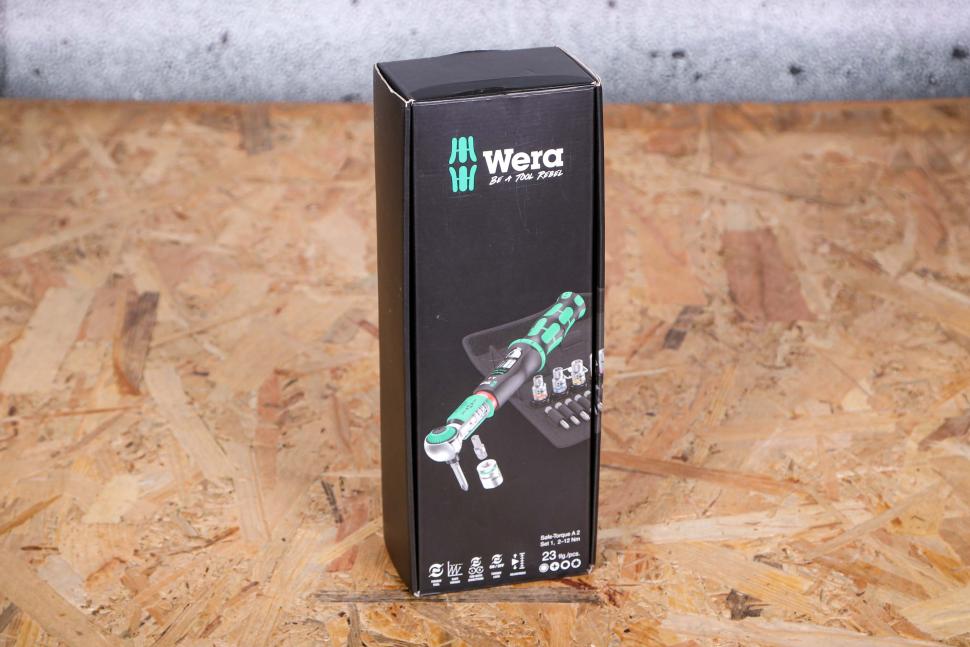
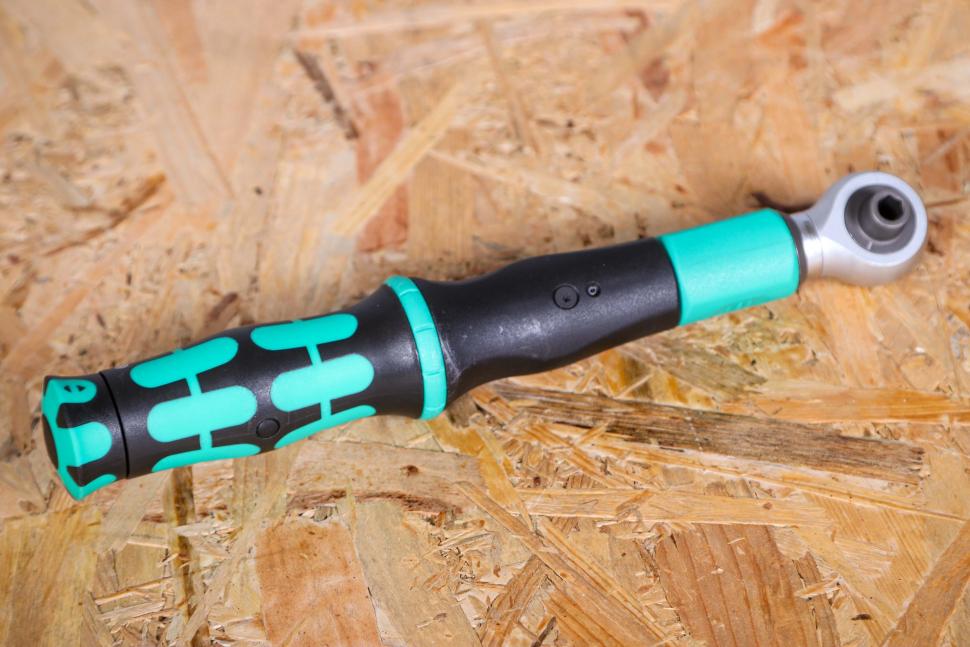
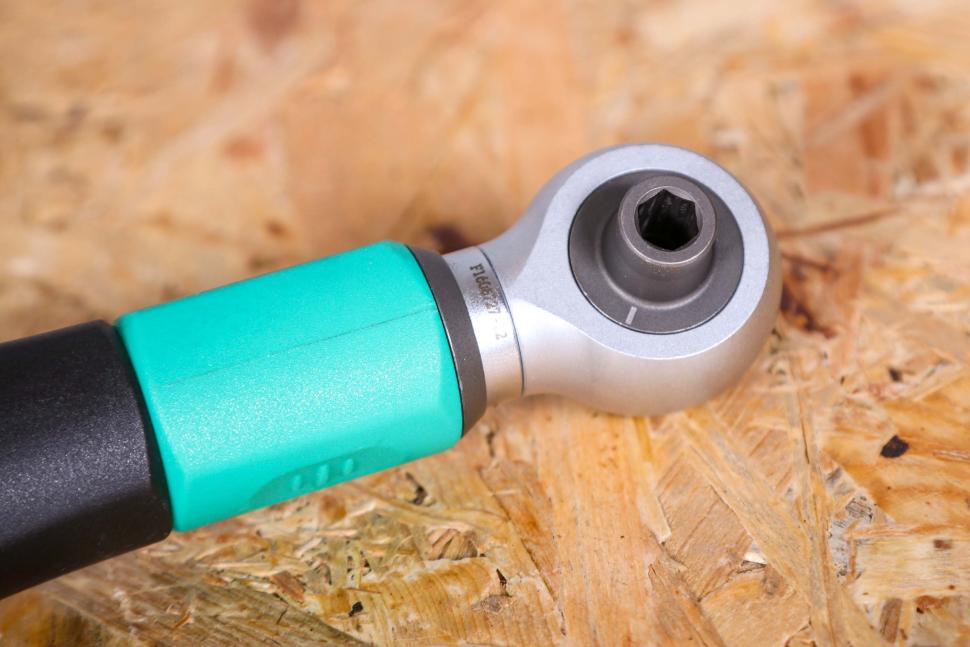

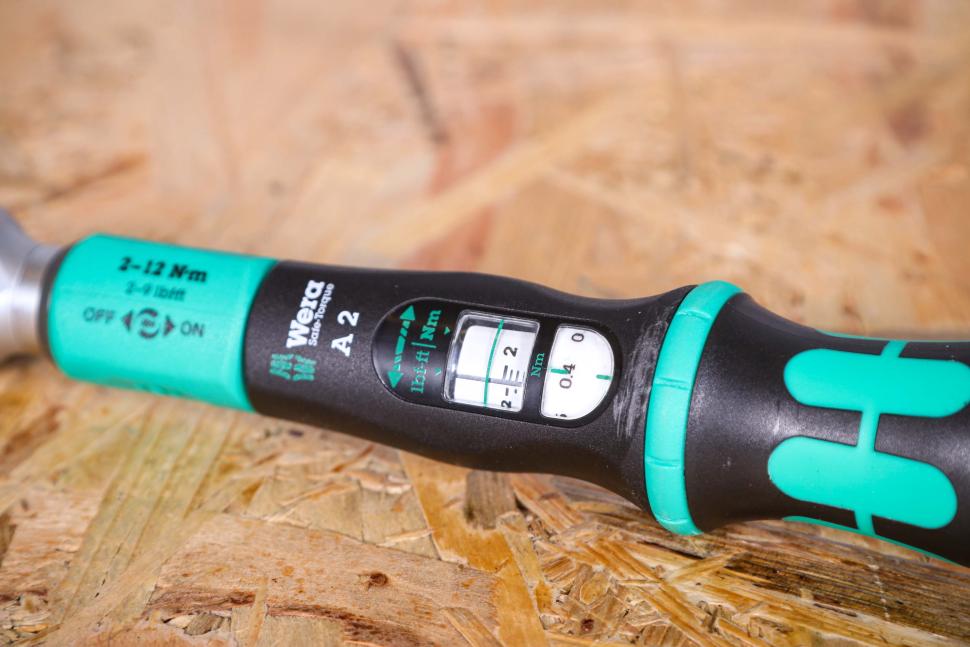
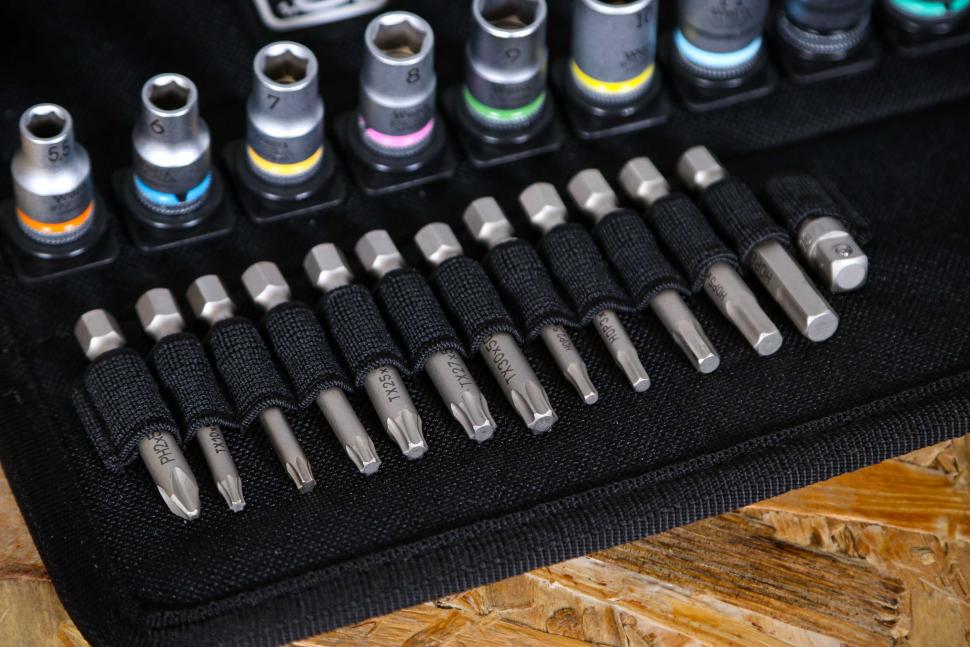
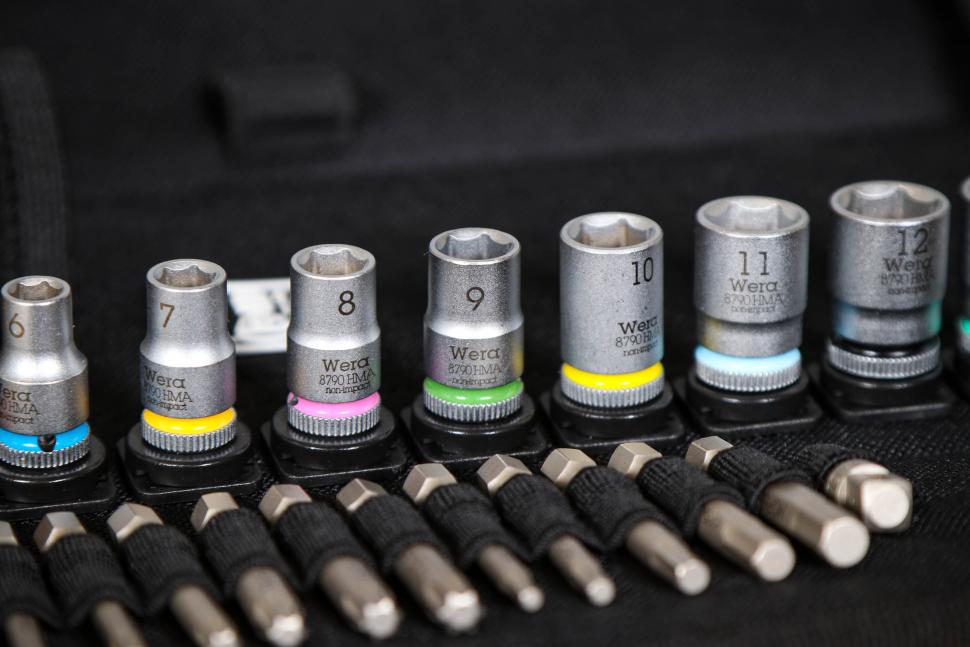
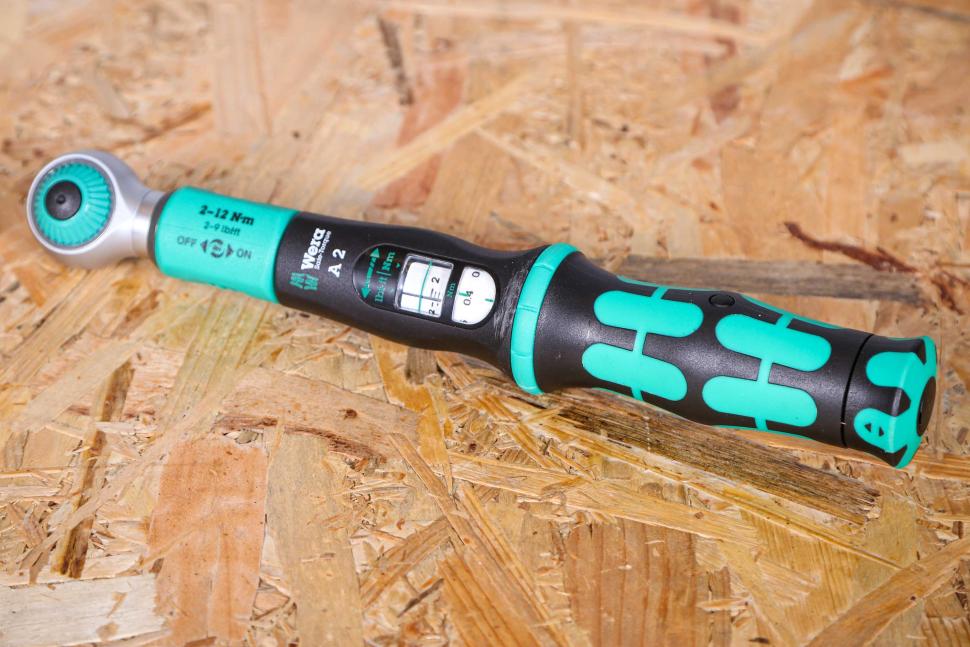

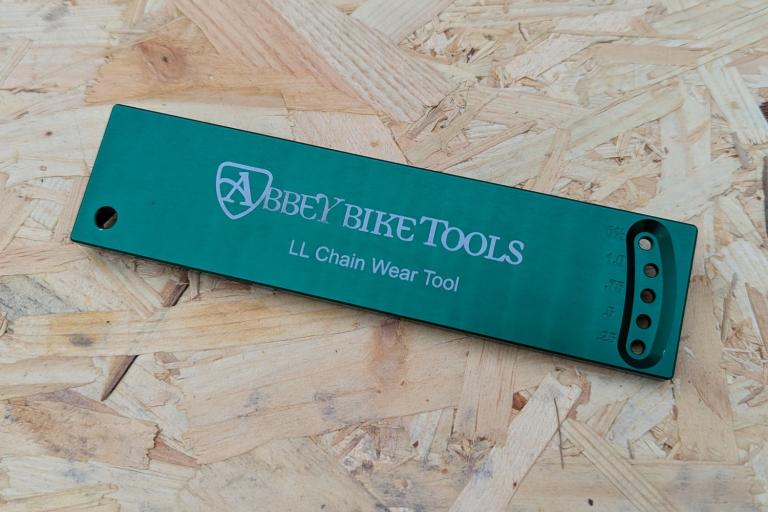
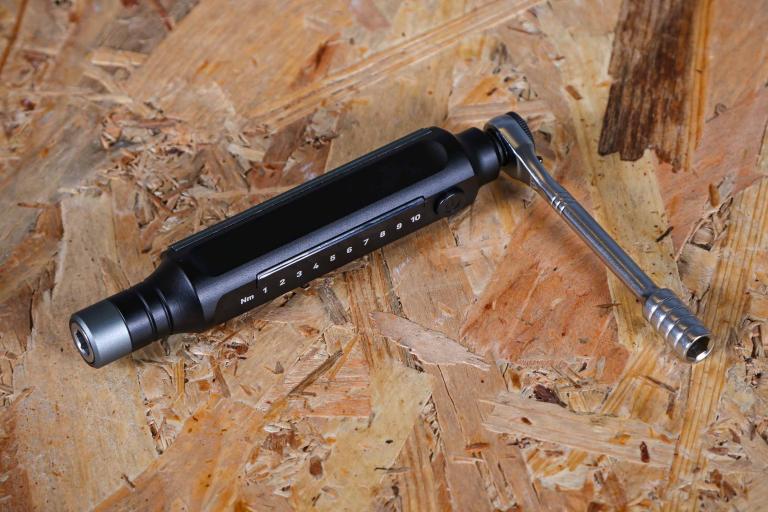
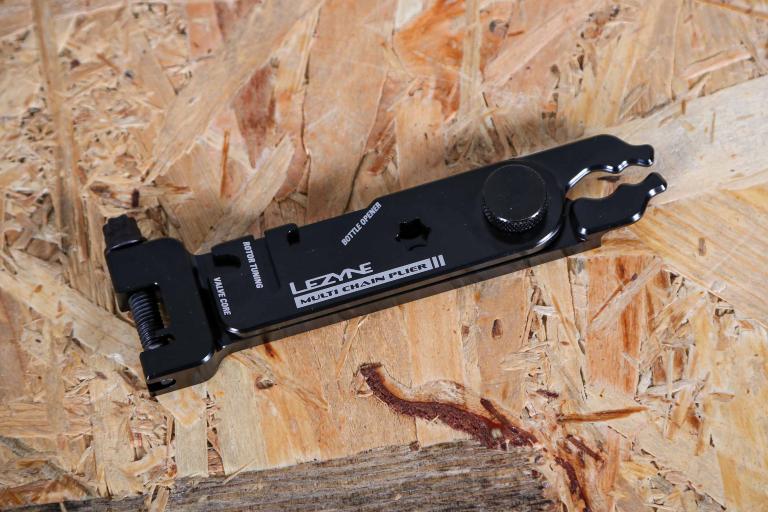
Add new comment
17 comments
what is this recalibration of which you all speak? Main pic: if you told me it was in the centre aisle at Lidl for £15.99, I wouldn't question it.
https://www.calibrate.co.uk/calibration/torque/
£40 to recalibrate my £40 torque wrench?
Like I said, no-one* in the bike trade does this.
(*disclaimer: I don't know everyone 😉)
A queer review, this. Why pick the tool with a load of bits you probably already have for a bike; and why criticise features (the big click avoiding over-torquing) you imagine will be "a danger" but only on a non-existent imaginary tool applying much greater torque?
The price quoted is also wrong. This set can be got at Amazon, for example, for £299 not £400+ whilst the torque wrench without all the bits you'll probably already have can be got for £211. Moreover, if you delay your gratification, it comes up for sale with 10 - 25% off from time to time. I got mine for £160 about 6 months ago.
Having used this tool in place of the cheap (£40) torque wrench of similar range I had, I can say from experience that the Wera tool does work with a safer outcome as well as being easier to set. Having the ability to switch it to standard-wrench mode is also very useful for undoing or doing-up anything just needing a wrench. It also fits the hand far better than does the older smaller torque wrench I have, even for the 4Nm bolts that the reviewer seemes to struggle with, poor thing.
As to this torque wrench in particular, it can be sent for recalibration, unlike most others. The range is good for bikes as 2 - 12Nm are the values for most bike bolts other than the teeny 0.5 - 2Nm bolts and the 40 - 50 Nm lock rings and similar. I know of no bike bolt wanting 13 - 39Nm other than a lock ring on the axle of a Fazua gearbox (25Nm). So a 2 - 25Nm wrench (which will take the reviewer even more seconds to adjust) has half it's range redundant to most cyclists.
********
Personally I'm extremely wary of overpriced cycling stuff where one pays for the label rather than what it's on. Wera is an exception to the general rip-off-with-fashion rule as their tools really are extremely well made, both functionally and ergonomically.
Wait for the reduced price and buy just the wrench (no bits) if you want a torque wrench that'll last forever and reamain accurate whilst preventing you over-torquing "just to make sure it's tight enough". But don't ignore less expensive items if they'll do you.
Isn't it always the case that the reviewer simply lists the RRP though? Anyway, don't get me wrong, I typically look forward to reviews of quality bike tools on here more than I do those of actual bicycles these days, and even though I've loosened the purse strings for kit from Abbey Bike Tools, Beta, Vessel and Knipex I'd struggle to justify this sort of outlay even if heavily discounted.
I go to 13.5Nm on these pinch bolts using the now discontinued Park Tool 1/4" drive little clicker, or whatever they called it. (Bigger stuff such as BBs and cassette lockrings I tend to just do up enough that I would be confident of getting them off again.)
The price - no point in making the supposed RRP a negative in a review if the actual price is at least 25% less than that, available to anyone who might be considering a purchase.
And why pick, to review for cyclists, the version of the tool that's packaged with loads of expensive bits most of which no cyclist will need for their bike, when the essential part (the torque wrench itself) can be bought for half of what the review claims its necessary to spend in acquiring the tool?
It's still expensive compared to the M-Parts and similar, though. But it does offer some improvements and benefits over the cheaper items.
********
It's true that those crank pinch bolts recommend the 12-14 (Shimano) or similar torque settings. However, every advisory I read from professional bike mechanics (and mechanics in general) suggest that the lower value is enough as going higher increases the risk of an over-tightening that will do damage in one way or another.
When you think about it, why are the manufacturers recommending a torque range rather than a specific single value? Surely the point of torque recomendations is to ensure the part is tightened exactly enough to keep it tight whilst avoiding damage? How would a user know when 12Nm is not enough but 13.8Nm, say, is? If it might be needed in some individual cases, why not avoid ambiguity and state "15Nm"?
But this to the side. In practice the range of torque needs, even on a bicycle, is quite large, despite there being a large not-needed value-gap between the 4 - 12Nm bolt needs and the 40 - 50Nm needs. The teeny bike screws also benefit from a low value torque wrench of 0.3 - 2Nm, as anyone who has wrecked a Shimano brake lever hydraulic fluid bleed port screw or similar teeny thing will know.
I know of no torque wrench that goes from 0.3Nm to 50Nm. If there was one, I would be suspicious of it's ability to achieve accuracy over such a range. So typically, we bike maintainers need two or three torque wrenches. Personally I have 0.3 - 3Nm; 2 - 12Nm and 10-50Nm. But then I yam a fussy little fusspot of a tool wielder.
You are head of sales & marketing at Wera UK and ICMFP.
Well done, now you can use YFP to buy about 1% of this kit.
Ha ha - no five nicker for you; but you must now owe me five for being wrong (as you are about everything, really).
Meanwhile, for them as enjoys a good tool, to apply or just gaze at & fondle, this website seems to offer the best on-line Wera prices I can find just now:
https://www.alpinetrek.co.uk/brands/wera/
I've not bought from here meself, mind.
The safe-torque wrench at issue, I see, can here be got for just over £160. But I'm sure you'll already have a nice TWSO (Torque Wrench Shaped Object) of your own from somewhere east of Suez. It might be ugly, have a tendency to round-over all it touches and be in dire need of calibrating but why bother tooling things rightly when you can just pretend to yourself that you're doing that, eh?
You really are a pompous know-all.
SO troo!
But just ignore my pompoidisty and sup up the knowledge that you feel I have all of, old chap. Just think how pleasant it will feel to be hauled up out of that stagnant pond of "wot every fule no" into a pleasant sunlit meadow wherein you can find enlightenment at last, concerning not just good tools for bicycles but, oh, all sorts.
Don't thank me, though - I would only feel embarrassed.
PS Is your non de plume an indication that there is a Mark 2, or even 5, that are somewhat improved on the original attempt to construct a whatever-you-are? Even mark 1 Wera tools have got a lot better since the olden days, tha knows.
Not really. The Wera distributor submitted the tool for review, as a unit. I can't pick and choose what not to review about it.
That unit has an RRP. Not sure how long you've been reading here but we always quote RRP because discounted pricing is impossible to keep up with and would therefore be misleading when inevitably it changes. If we show the RRP then readers can compare and contrast value much easier, instead of having to work out if we are showing RRP vs. a random Blue-Moon discount clearance.
Everything I've stated in the review is factually correct. I'm not here for you, you've already purchased, and now seem oddly obsessed with justifying your spend. I'm here to help save someone else from possibly being disappointed having invested a staggeringly large sum by most people's standards.
It is factually incorrect to say that 'most' adjustable torque tools cannot be recalibrated. *Every* adjustable tool I own, from the £25 Silverline ones up, came with a certificate and can be recalibrated.
99.99999999999999% of home or pro mechanic torque tool users will never send their devices for calibration. The cost and downtime isn't justified. I have a 'golden reference' calibrated tool I only use to compare my daily tools against every few months to make sure they are still in spec. Guess what? My £25 Silverline tool from 10 years back is still just as accurate as the £409 Wera tool. And that's with near-daily use. Maybe because I treat it nicely.
...and the scale is easier to read too.
You also haven't mentioned the trumpeting elephant in the room - that there isn't a compelling use case for a reverseable 2-12Nm tool on a bike. And certainly not one so large, unwieldy and a faff to set/unset.
Spot on. Hopefully Cugel will realise now's the time to shut up, but I wouldn't bet my house on it. Wera tools are great, and I have a number, but there are several other options to achieve the same as this set does without stepping down in quality and for considerably less money.
Yes you can. It wouldn't be difficult to point out that the torque wrench can be bought seprately and that most cyclists won't need many of the extra bits or the case, whilst probably having the few bits they will need for a bike already.
It's far more "misleading" to state that the price of what you're reviewing is one charged by no seller; and to neglect to say what the tool (with and without the extra bits et al) can actually be got for. This is the convention with any number of similar reviews; and for good reason.
You seem to be oddly obsessed with dissing a tool you've obviously taken agin', with false price info and a "dangerous to use" factor invented entirely by yourself - for a hypothetical tool using much more force that this one, which tool doesn't even exist!
In practice, its expensive to have a torque wrench recalibrated. Also, the service you may eventually find to do so may or may not do a proper job. The Wera recalibration service will also be costly but at least they make it clear there is such a service and impose quality standards on it.
Do you think a Silverline calibration certificate is a trustworthy document?
You having a supposed "golden reference" tool against which to check your other torque wrenches is not really a very effective means to check calibration is it? What if your golden reference" is fool's gold?
Also, do you need specs? I do and they make reading all those torque wrench scales (and much else) very easy.
You perhaps don't realise it but a torque wrench can be used for all sorts of other items besides a bicycle. Some of those other things might have them left hand threads! No elephant about after all, then.
**************
Don't get me wrong - I think Wera tools can often fall into the class of purchasable items that offend the law of diminishing returns.
Your review is also right to question (even though you don't do so explicitly) the habit of Wera to package up a collection of their tools aimed at those who are tool collectors rather than tool users.
In addition, labelling such collections as somehow "for cycling" is misleading, especially when several of the included bits won't have any corresponding fasteners on a bike and the tool collection is one derived by marketing fellows rather than tool using fellows.
But I think it unprofessional for a mass-media reviewer of things to invent or misrepresent aspects of what they're reviewing to serve the modern journo-need to "have an exciting opinion" rather than to disinterestedly relay factual information about something.
Still, at least you didn't just regurgitate the Wera PR, as so many "reviewers" of various other bike related items do. However ....
"Could do better".
🤦♂️. Christ. You have the right to your (many) opinions of course, but do you have to do it in the style of 'Quite Bright, but Doesn't Know When to Stop Showing Off, GCSE English Language Student'? You could have made all your points adequately, and without coming across like a bit of an idiot, in 100 words rather than several thousand.
noted.